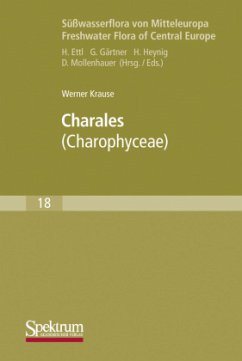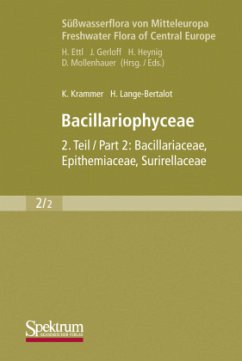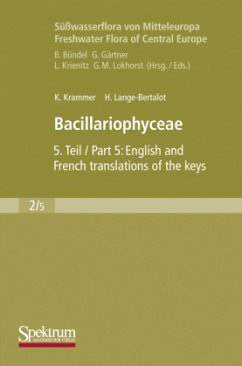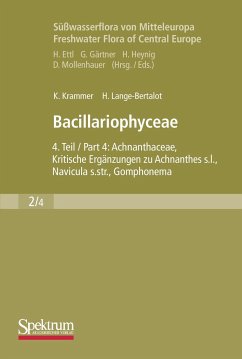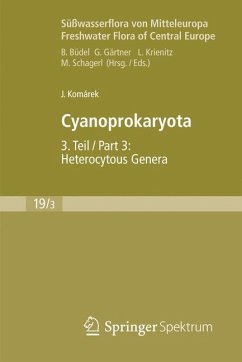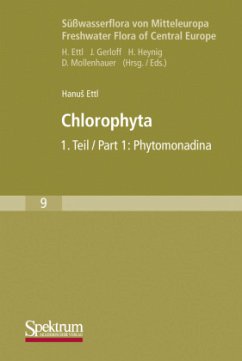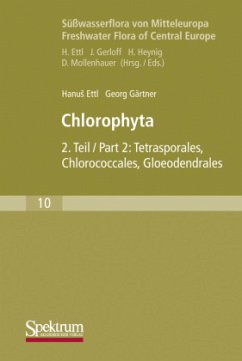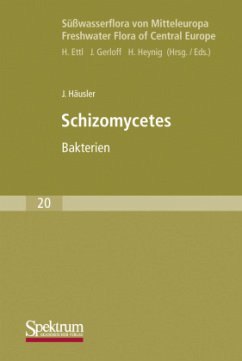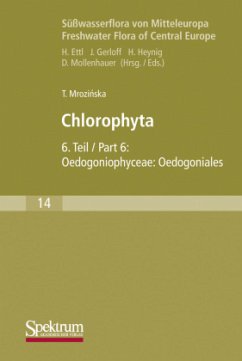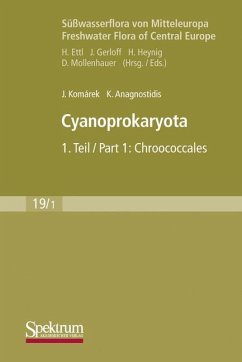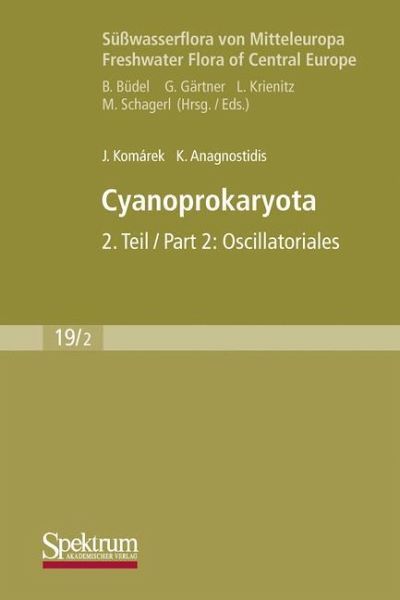
Süßwasserflora von Mitteleuropa, Bd. 19/2: Cyanoprokaryota
Bd. 2 / Part 2: Oscillatoriales
Begründet: Pascher, Adolf
Versandkostenfrei!
Versandfertig in 6-10 Tagen
213,99 €
inkl. MwSt.

PAYBACK Punkte
0 °P sammeln!
Cyanoprokaryotes are probably the oldest organisms with plant metabolism. However, their cell structure and type of asexual reproduction prove their eubacterial origin. In spite of their existence from Precambrian onwards they have not lost their vitality, and still are able to colonize all possible biotopes, including very extreme environments (thermal springs up to 80 °C, rocks in extremely hot or cold deserts in both the tropics and Antarctica, hypersaline lakes and marshes, biotopes in volcanic regions, and other harsh habitats).This book is a review of all the cyanoprokaryotic taxonomic ...
Cyanoprokaryotes are probably the oldest organisms with plant metabolism. However, their cell structure and type of asexual reproduction prove their eubacterial origin. In spite of their existence from Precambrian onwards they have not lost their vitality, and still are able to colonize all possible biotopes, including very extreme environments (thermal springs up to 80 °C, rocks in extremely hot or cold deserts in both the tropics and Antarctica, hypersaline lakes and marshes, biotopes in volcanic regions, and other harsh habitats).This book is a review of all the cyanoprokaryotic taxonomic units, registered and recognizable from European natural biotopes, including the marine coasts. Our determination keys and taxonomic descriptions should permit the identification of natural populations, and should be related to known culture material. Numerous strains were isolated, kept in strain collections and used as important model organisms for experiments of various kinds. In culture only a few cyanoprokaryotes show the typical growth form known from nature, most others can be made to display their typical forms and life cycles by special procedures only. The identification of strains without previous knowledge of natural material needs to be carried out with special care.The aim of this book is to make possible the identification and standardization of known, morphologically and ecologically distinguishable cyanoprokaryotes that have been described from natural populations in Europe. Therefore, in the introductory part only data important for identification are presented. At the end of this chapter we append a list of basic literature, where all the detailed information necessary can be found. We have selected accurate drawings of the species described in the text. We also present illustrations of some non-European species if necessary for understanding the generic diacritical features or infrageneric diversity.



